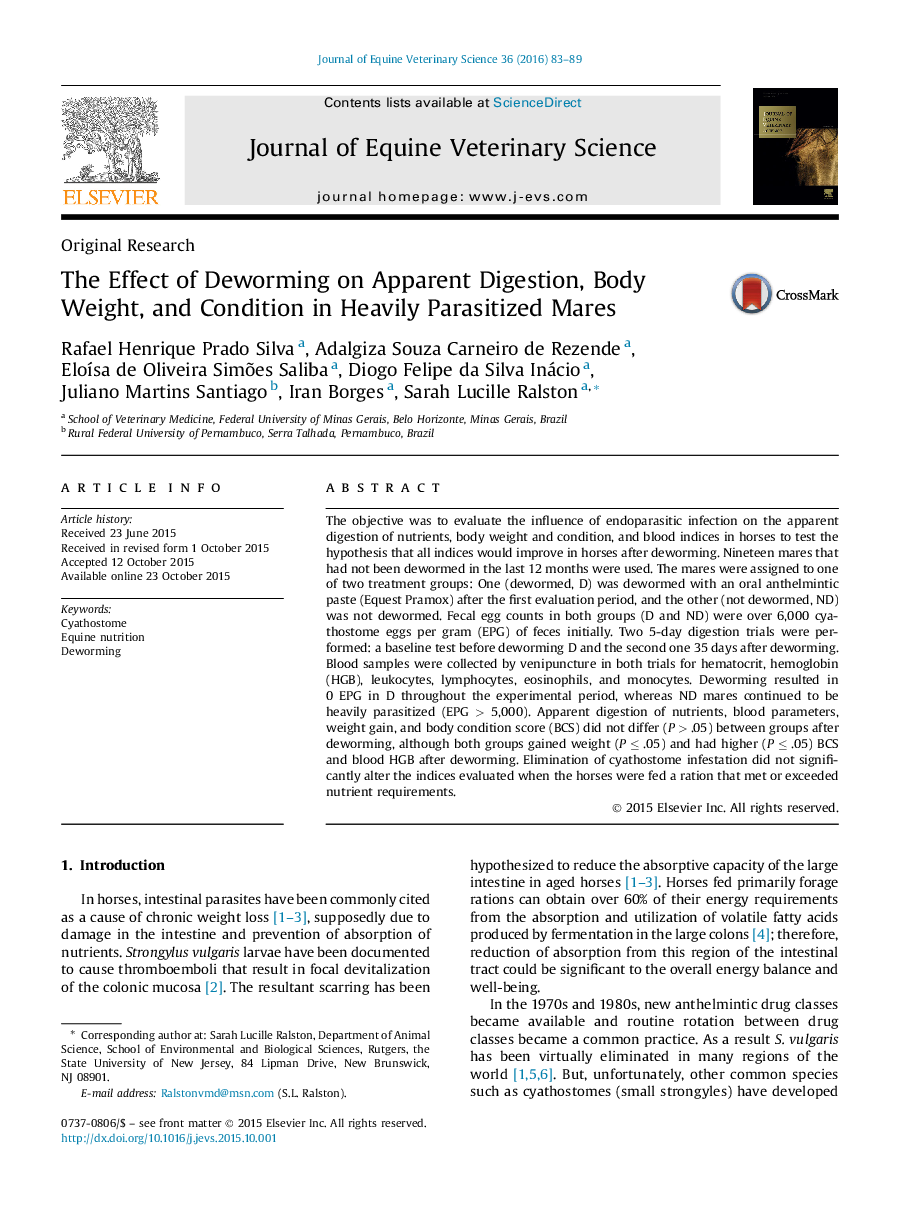| Article ID | Journal | Published Year | Pages | File Type |
|---|---|---|---|---|
| 2394763 | Journal of Equine Veterinary Science | 2016 | 7 Pages |
•The effect of deworming was evaluated in 19 mares.•Digestion and weight gain were evaluated before and after deworming 1/2 the mares.•Elimination of cyathostomes did not affect indices evaluated.•All horses gained weight and condition during the experiment.•Nutrient digestion was not affected by deworming well fed horses.
The objective was to evaluate the influence of endoparasitic infection on the apparent digestion of nutrients, body weight and condition, and blood indices in horses to test the hypothesis that all indices would improve in horses after deworming. Nineteen mares that had not been dewormed in the last 12 months were used. The mares were assigned to one of two treatment groups: One (dewormed, D) was dewormed with an oral anthelmintic paste (Equest Pramox) after the first evaluation period, and the other (not dewormed, ND) was not dewormed. Fecal egg counts in both groups (D and ND) were over 6,000 cyathostome eggs per gram (EPG) of feces initially. Two 5-day digestion trials were performed: a baseline test before deworming D and the second one 35 days after deworming. Blood samples were collected by venipuncture in both trials for hematocrit, hemoglobin (HGB), leukocytes, lymphocytes, eosinophils, and monocytes. Deworming resulted in 0 EPG in D throughout the experimental period, whereas ND mares continued to be heavily parasitized (EPG > 5,000). Apparent digestion of nutrients, blood parameters, weight gain, and body condition score (BCS) did not differ (P > .05) between groups after deworming, although both groups gained weight (P ≤ .05) and had higher (P ≤ .05) BCS and blood HGB after deworming. Elimination of cyathostome infestation did not significantly alter the indices evaluated when the horses were fed a ration that met or exceeded nutrient requirements.
